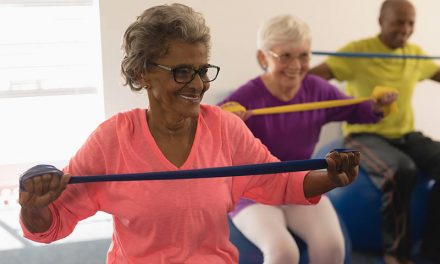5 unexpected benefits of volunteering
Why do people volunteer? Because they want to help people or animals in need. Improve their communities. Protect the environment. Or advance the arts or political ideals. In short, because human beings are hard wired to want to help others in need.
But volunteering is also of great benefit to you, the volunteer! It helps you meet people and make friends, connect with your community, learn new skills, and even advance your career. Plus, it makes you feel good, and improves your mental and physical health.
Five benefits of volunteering
Gain a sense of purpose
If you’re unemployed, retired, or have recently lost your life partner … or you’re just feeling a bit down and unmotivated … helping others can give your life new meaning. Trying something new, and making a difference to someone else, leads to a sense of achievement.
You’ll feel more connected to your community. And, by working together with others to achieve a common purpose, you’ll improve your mental wellbeing and dispel those feelings of loneliness, isolation or depression.
Meet new people and make friends
If you’re shy and not naturally outgoing, it can be difficult to meet new people or make friends. Volunteering gives you the opportunity to be part of a group of people who meet regularly with a common purpose. You can’t be shy when you are working together, packing food parcels or toiletry hampers, or making up sandwiches.
If you’re new to the area, volunteering is a great way to feel part of the community. And it’s ideal for team building with groups of friends or co-workers. In some volunteering positions, you may also build bonds with the people you are helping.
Learn new skills and see the world differently
When you volunteer, you may work with people from diverse backgrounds and be exposed to different cultures and beliefs. How enlightening it is to see life’s challenges from a completely different perspective! Apart from gaining insight, you’ll benefit from greater appreciationzfor your own life.
You may also learn all sorts of new skills related to the work you’re doing – from how to communicate better and use different computer programmes, to marketing, fundraising, and other skills specific to the cause.
Find a job
For students and unemployed young people looking for work, volunteering gives you a foot in the door. You won’t be paid for the work you do. However, you get the opportunity to gain experience in a different field. Work experience counts for a lot when you are job seeking. But it’s a chicken and egg situation; how do you gain work experience when you don’t have a job?
As a volunteer, you get the opportunity to learn all sorts of useful skills. And if you show promise, the organisation may offer you a job. You could also benefit from meeting people who can become your mentors. At the very least, listing volunteer experience on your CV impresses prospective employers. If you are short listed for a position, this just might give you the edge you need!
Feel good
Helping others is a great way to boost your own happiness. Volunteering has been scientifically proven to reduce symptoms of depression and increase life satisfaction and wellbeing. In short, it makes you happier. Much like ‘runner’s high’, people who volunteer experience a helper’s ‘high’ after performing acts of kindness, followed by a feeling of peace and calm.
Whether you volunteer formally at your favourite non-profit, or join friends with a mission to clean up your neighbourhood, beach or park, you’ll enjoy the tremendous satisfaction of knowing you’re making a difference. Be sure to include your children. Because getting young people involved in volunteering helps them develop into more giving and caring adults. And the world needs more people like that!
Find the right fit
Once you’ve made the decision to volunteer, the next consideration is, for whom? Choose a cause that’s close to your heart. Maybe you want to lead the war on plastic waste in your community? Pack food parcels or help out at a soup kitchen serving those who are hungry? Interact with residents at an old age or children’s home? You might have special skills to donate, depending on your profession. Or prefer to work in the background, helping out with admin tasks.
Whichever organisation you choose, your efforts really will make a difference. Because, the work you do as a volunteer saves the organisation having to pay someone to do it. This allows them to channel those funds into critical programmes.
Time and skills
Decide in advance how much time you are willing to commit, and what skills you can bring to the job. Then either contact a specific non-profit organisation to volunteer your services. Or join a volunteer organisation like The Robin Hood Foundation, your local Rotary or Lions Club, or Angel Paws (therapy dogs).
Make sure you understand what’s expected of you. Consider starting small so that you don’t over commit yourself at first. Don’t feel compelled to stick in a volunteer position you dislike. Speak to the organisation about trying a different role. Or look for a different organisation that’s a better fit.
If you’re interested in finding out more about volunteer opportunities at Tafta, please contact Madeleen on 031 332 3721 or email madeleenv@tafta.org.za.






